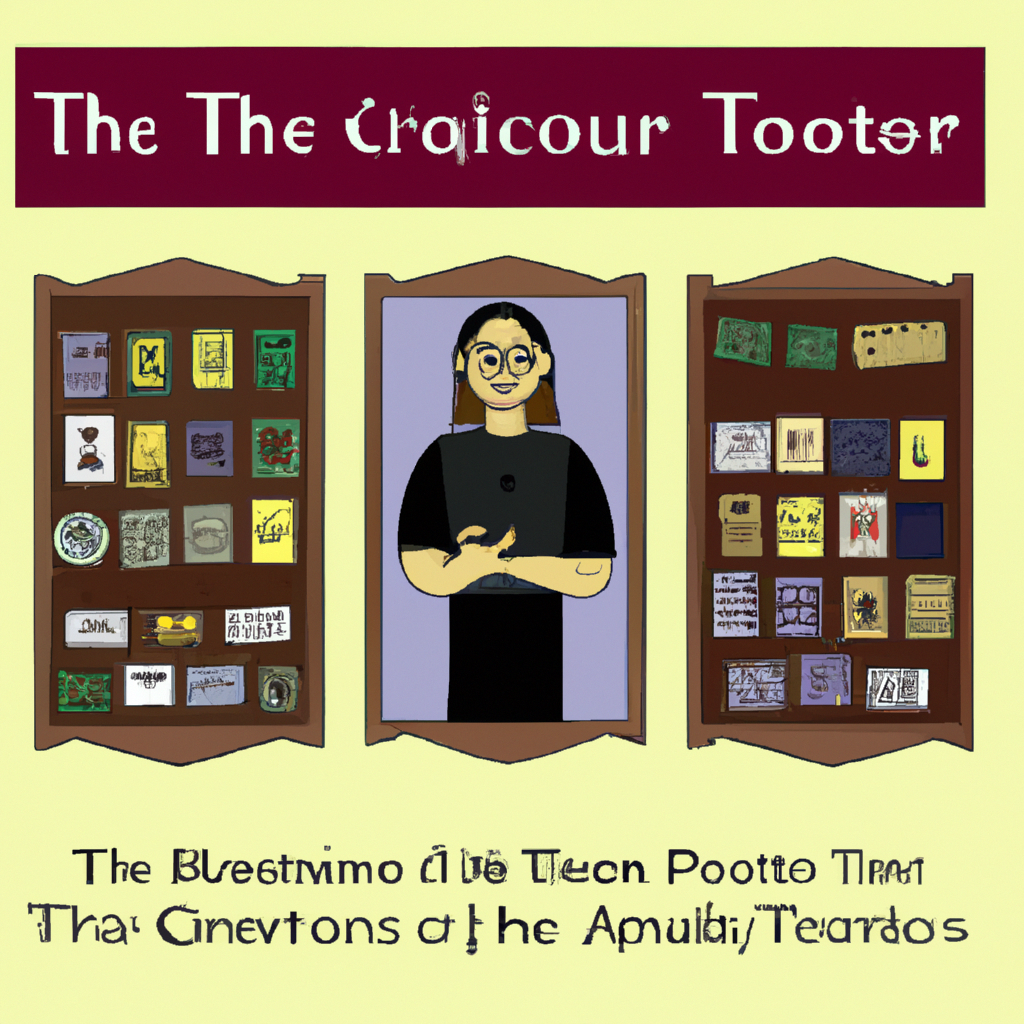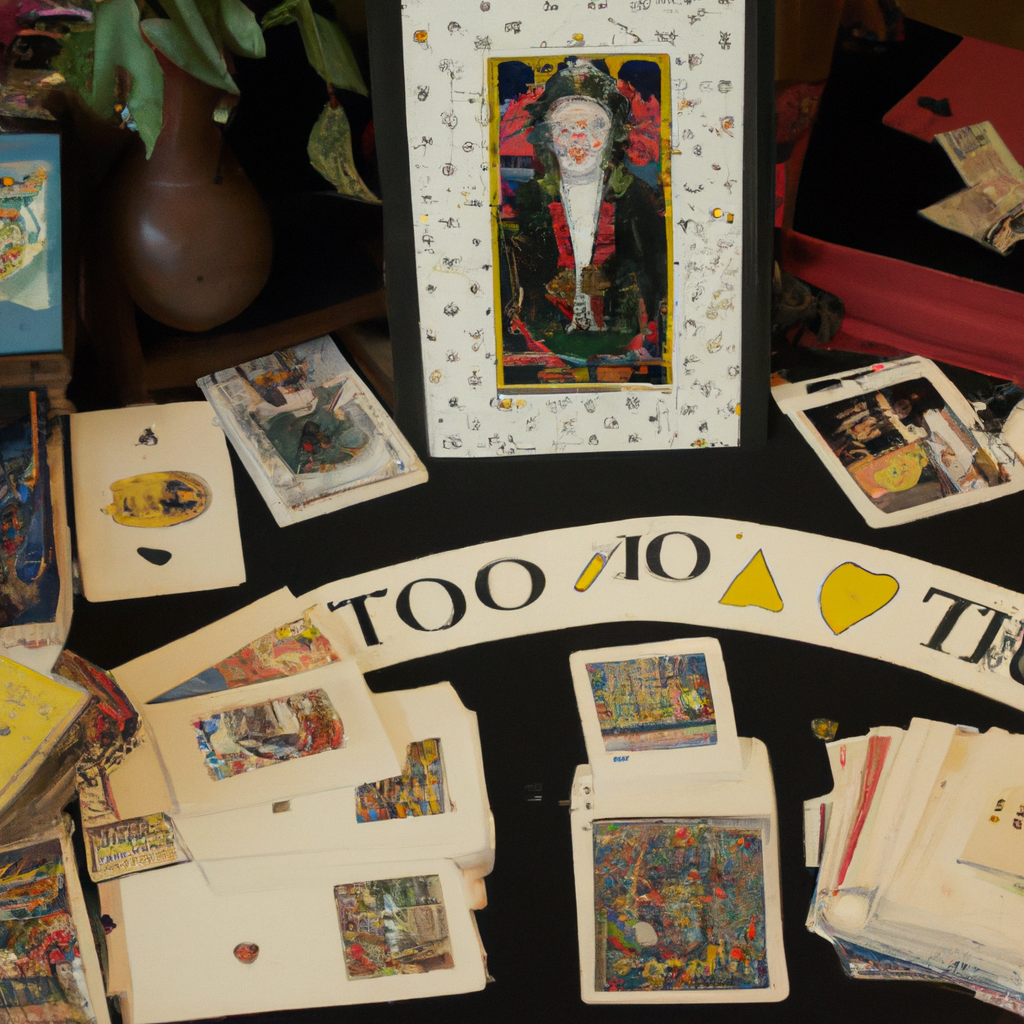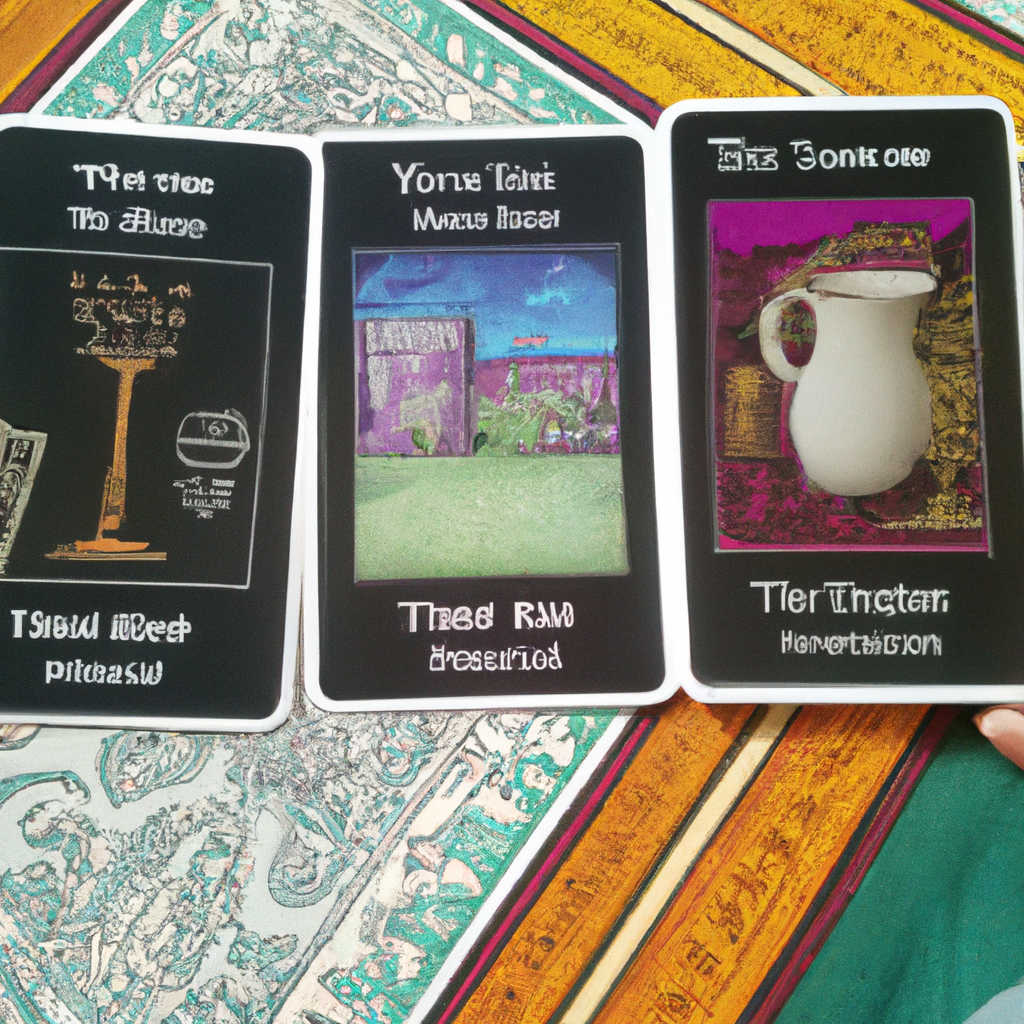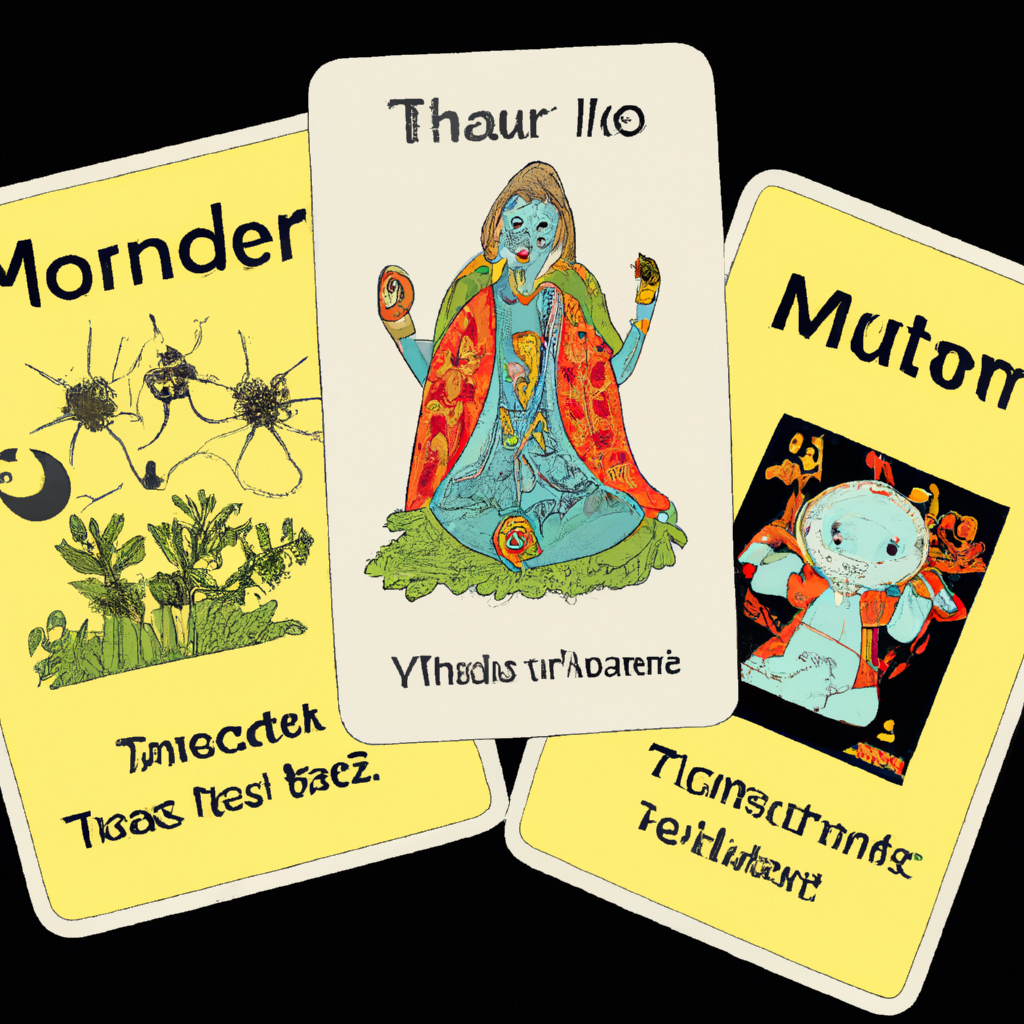Shopping cart:
-
1 x $40.00

The Tarot Archivist is a fascinating figure, a custodian of the rich and diverse history of tarot. Their role is as intriguing as the tarot cards themselves, filled with mystery, symbolism, and a deep connection to the past. The Tarot Archivist is not just a collector of tarot decks, but a preserver of stories, a chronicler of history, and a bridge between the ancient wisdom of tarot and the modern world.
Imagine walking into a room filled with hundreds, perhaps thousands, of tarot decks. Each deck is unique, with its own artwork, symbolism, and story to tell. This is the world of the Tarot Archivist. They are the keepers of these decks, ensuring that each one is preserved and cared for. But their role goes beyond mere preservation. They delve into the history of each deck, researching its origins, its creators, and the cultural context in which it was created. They are, in essence, historians of the tarot.
The Tarot Archivist’s work is a labor of love, driven by a passion for tarot and a deep respect for its history. They understand that each deck is a piece of art, a snapshot of the time and place in which it was created. They appreciate the craftsmanship that goes into each card, the thought and creativity that goes into the artwork, and the deep symbolism that each card holds.
But the Tarot Archivist’s role is not just about preserving the past. They also play a crucial role in shaping the future of tarot. By preserving and studying the history of tarot, they help to ensure that this ancient wisdom is not lost. They help to keep the tradition of tarot alive, passing it on to future generations. They are the bridge between the past and the future, ensuring that the wisdom of the tarot continues to enlighten and guide us.
The Tarot Archivist also plays a crucial role in the tarot community. They are a source of knowledge and expertise, helping to educate others about the history and symbolism of tarot. They help to foster a deeper understanding and appreciation of tarot, enriching the experience for everyone who uses tarot for guidance, self-reflection, or simply as a tool for personal growth.
In a world where everything is increasingly digital and ephemeral, the work of the Tarot Archivist is more important than ever. They remind us of the value of tangible, physical objects, of the beauty and power of art, and of the importance of history and tradition. They remind us that tarot is not just a deck of cards, but a rich tapestry of stories, symbols, and wisdom that has been woven over centuries.
So, the next time you pick up a tarot deck, take a moment to appreciate the history and craftsmanship that has gone into it. Think of the Tarot Archivist, diligently preserving and studying these decks, ensuring that the wisdom of tarot is not lost. And remember that you are part of this rich history, a link in the chain that connects the past, present, and future of tarot.

Once upon a time, nestled in the heart of a bustling city, there was a quaint little shop that was home to a world of mysticism and magic. The shop was owned by a woman known as the Tarot Archivist. She was a guardian of sorts, preserving the rich history of tarot cards, a task she undertook with great passion and dedication.
The Tarot Archivist’s shop was a treasure trove of tarot decks, each with its unique story and symbolism. The walls were adorned with antique tarot cards, their faded colors and worn edges a testament to their age and the countless hands they had passed through. The air was thick with the scent of old paper and ink, a comforting aroma that welcomed every visitor.
The Tarot Archivist believed that every tarot deck had a soul, a unique energy that was shaped by its history. She saw herself as a custodian of these souls, preserving them for future generations. She understood that the tarot was more than just a tool for divination; it was a mirror of human consciousness, a reflection of our collective experiences and beliefs.
The Tarot Archivist’s work was not just about preserving the physical cards, but also the knowledge and wisdom they contained. She spent countless hours studying the symbolism and meanings of the cards, delving into ancient texts and consulting with other tarot scholars. She believed that the true power of the tarot lay in its ability to connect us with our subconscious minds, to reveal truths that were often hidden from our conscious awareness.
The Tarot Archivist also understood the importance of sharing this knowledge with others. She regularly held workshops and seminars, teaching others how to read and interpret the tarot. She believed that by sharing this knowledge, she was helping to keep the tradition of tarot alive, ensuring that it would continue to evolve and grow with each new generation.
But perhaps the most important aspect of the Tarot Archivist’s work was the sense of community she fostered. Her shop was a gathering place for tarot enthusiasts, a space where they could share their experiences and learn from each other. She believed that the tarot was a tool for connection, a way to bridge the gap between individuals and create a sense of shared understanding.
The Tarot Archivist’s work was a labor of love, a testament to her passion for the tarot and its rich history. She understood that the tarot was more than just a collection of cards; it was a living, breathing entity, a reflection of our collective consciousness. By preserving the history of the tarot, she was not just preserving a piece of our cultural heritage, but also a piece of ourselves.
In the world of tarot, the role of the archivist is crucial. They are the keepers of knowledge, the guardians of history. They ensure that the wisdom of the tarot is preserved and passed on to future generations. They are the bridge between the past and the future, the link that connects us to our ancestors and to the collective wisdom of humanity.
So, the next time you pick up a tarot deck, remember the Tarot Archivist. Remember the love and dedication that goes into preserving the history of the tarot. And remember that you are part of that history, a link in the chain that connects us all.
Once upon a time, nestled in the heart of a bustling city, there was a quaint little shop that was home to a unique profession. The shop was filled with an array of colorful tarot decks, ancient manuscripts, and a myriad of mystical artifacts. The shopkeeper, a charming individual with a twinkle in their eye, was not just any ordinary merchant. They were a Tarot Archivist, a guardian of the rich history and tradition of tarot.
The Tarot Archivist’s role is a fascinating one, steeped in history and mystery. They are the custodians of the tarot’s past, preserving its integrity and ensuring its future. Their work is a delicate dance between the realms of the spiritual and the scholarly, a balance of intuition and intellect.
Imagine, if you will, the Tarot Archivist at work. They carefully handle each tarot deck, their fingers tracing the intricate designs of the cards. Each card is a piece of history, a snapshot of the beliefs, hopes, and fears of the time it was created. The Archivist’s task is to preserve these precious artifacts, to keep them safe for future generations to study and appreciate.
But the Tarot Archivist’s work goes beyond mere preservation. They are also researchers, delving into the origins and evolution of tarot. They trace the journey of the tarot from its humble beginnings as a card game in the 15th century to its current status as a tool for divination and self-discovery. They explore the cultural and historical contexts that shaped the tarot, uncovering the stories behind the symbols and imagery on the cards.
The Tarot Archivist also plays a crucial role in debunking myths and misconceptions about tarot. They help to demystify the tarot, shedding light on its true nature and purpose. They remind us that the tarot is not a tool for predicting the future, but a mirror that reflects our inner selves. It is a tool for introspection, for understanding our hopes, fears, and desires.
The Tarot Archivist’s work is a labor of love, a testament to their passion for tarot. They are driven by a deep respect for the tarot’s history and a desire to preserve its legacy. They understand that the tarot is more than just a collection of cards. It is a living, breathing tradition, a tapestry of human experience woven over centuries.
In the end, the Tarot Archivist is not just a keeper of the past, but a bridge to the future. They ensure that the wisdom of the tarot is passed down to future generations, keeping the tradition alive. They are the torchbearers, guiding us on our journey through the labyrinth of the tarot.
So, the next time you shuffle a deck of tarot cards, spare a thought for the Tarot Archivist. Remember the work they do to preserve the history of tarot, to keep its stories alive. And perhaps, in your own way, you too can become a part of this grand tradition, adding your own chapter to the story of tarot. After all, as the Tarot Archivist knows, every card, every reading, every interpretation is a piece of the puzzle, a thread in the tapestry of tarot’s rich history.
The Tarot Archivist plays a crucial role in preserving the rich and diverse history of Tarot. This involves safeguarding various Tarot decks, literature, and other related artifacts, and documenting the evolution and interpretation of Tarot over the centuries. The work of the Tarot Archivist is essential in maintaining the cultural significance and understanding of Tarot, providing valuable insights for both scholars and enthusiasts alike.









